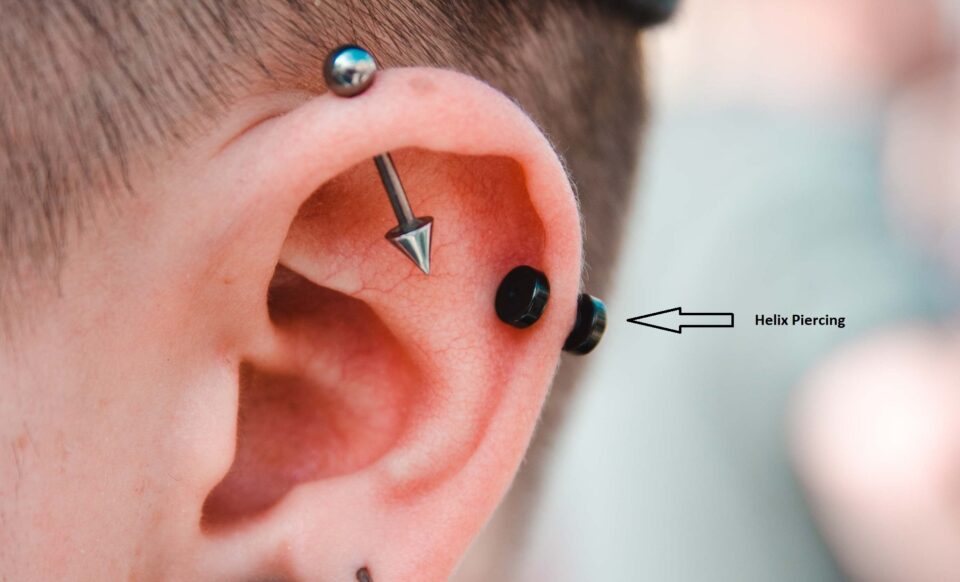Before you proceed for getting a helix piercing you should also keep in mind you might develop an infection if not treated carefully. There are many things you should keep in mind before opting for an ear piercing. However, if you have already developed one, there’s no need to panic at all! This article would be the ultimate guide to learning all the basics of ear piercing and piercing infection.
What are the causes of the infection?
As you know when your ears are pierced a gap is left between the skin that develops into a wound. Now the longer the piercing would take to heal, the longer it would remain exposed to external elements such as air, water, bacteria, dirt, etc. Now, when you opt for the helix style, the piercing is done on the cartilage of the ear resulting in a deeper wound. This wound takes a little more time to heal than the usual piercings hence, it is more prone to infections. Some commons reasons for piercing infections are:
- In case you get your piercings done from a non-hygienic place, there are huge risks of developing an ear infection. The person who is doing this procedure should wear highly sanitized hand gloves to avoid any sort of bacterial transportation. The instruments needed for the procedure should also be highly sterilized and cleaned. If you fail to maintain these standards while getting your ears pierced, there are high chances of you developing ear infections.
- Wearing an earring that is too uncomfortable to the earrings would be a major reason to develop such infections. This happens as the tightly fitted earrings leave no space for the wound in the ear cartilage to breathe. This eliminates all the possibility of the wound healing quickly.
- If you touch your newly done piercings frequently, you can welcome the bacteria with your own hands. Suppose you touch a book left on your desk for a long time and then take the same hand to your ear. This would result in the transfer of the bacteria on the book to your piercing making the wound more prone to infections.
What are the noticeable symptoms?
There are some noticeable and prominent symptoms that would help you determine whether or not you have developed an ear infection in your piercing. Check them out below:
- Swelling of the ears
- Redness of the upper portion of the ear
- Severe itching
- Intense burning of the ears
- Pus-like discharge (primarily yellow)
If you notice any of the above-mentioned symptoms, it’s an indication of an ear piercing. Don’t leave your ear unattended in such cases.
Remedies to cure an infected piercing
Check out these easy and quick ways to treat an infected helix piercing without undergoing much hassle.
- Since you can get multiple ear piercings done, determine the infected piercing first whether the infection has developed in the lower helix piercing or the upper helix piercing.
- Before you touch the infected part of your ear piercing, make sure to wash your hands thoroughly. This would avoid even the minimum communication of the bacteria.
- Saline water is a great option to ease such infections. Take fresh distilled water along with some iodized salt to make your saline water. Now put it on the wounded area gently. You can repeat this process between 3 to 4 times a day.
- Once you have done applying freshly made saline water to your wound, it’s time to make the area dry. Use a sanitized towel to soak up all the wetness of your earlobes. Also, make sure you do that cautiously avoiding any sort of bacterial contamination.
Things to keep in mind
- When you develop an infected piercing, never try to put off the ring. This would make it easier for the bacteria to develop by making more room for it.
- Substances such as alcohol, hydrogen peroxide, etc can be fatal to the wound. Avoid these substances at all costs to speed up your healing procedure.
Closing notes
This was all you needed to know about an infected piercing wound and what you should do to cure it. Keep note of the minor things such as cleaning your hands before touching the piercing, avoiding alcohol products, etc to stop the infection from happening in the first place.

